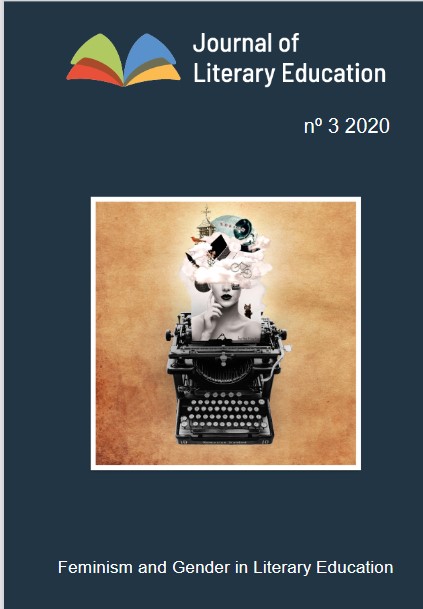Breaking female stereotypes: Bianca Pitzorno’s girls and the power of literature on gender socialization
DOI:
https://doi.org/10.7203/JLE.3.15998 Abstract
Abstract
Bianca Pitzorno is one of Italy’s most famous children’s writers. Her works – more than forty books translated into different languages – often address topics linked to gender identity and femininity. Pitzorno’s novels for children usually depict non-canonical female characters: rebel, dynamic and intelligent young girls that fight against adult injustice in order to affirm their agency.
The paper aims to explore female portrayals in Pitzorno’s novels and their potential educational impact in reconsidering gender stereotypes and roles from an early age. Literature is one of the most influential tools in the construction of gender ideals and gender socialization. Consequently, positive female models – as Pitzorno’s characters – should be offered to young readers from an early age in order to foster an inclusive collective imagination about femininity.
For instance, Extraterrestre alla pari [Aliens on par] (1979) directly focuses on gender issues telling the story of a young alien coming from a planet where young boys and girls do not know their sex until they reach adulthood. For this reason, they are considered as gender-neutral beings. Likewise, L’incredibile storia di Lavinia [Lavinia and the magic ring] (1985) ironically retells Hans Christian Andersen’s The Little Match Girl working on humor and female agency. Finally, Principessa Laurentina [Princess Laurentina] (1990) deals with adolescence and family dynamics, offering different portrayals of female identity, from a young age to adulthood.
Because of the brilliant and nontraditional depiction of female figures and the deconstruction of gender canon in a simple but captivating way, Pitzorno’s novels should be internationally considered in primary school curriculums as a starting point to introduce gender diversity in reading programs and to discuss gender issues with the help of adult figures such as teachers, educators and parents.
 Downloads
Downloads
Downloads
Published
-
Abstract533
-
PDF530
Issue
Section
License
![]()
This work is licensed under a Creative Commons Attribution-NonCommercial-NoDerivatives 4.0 International License.
Authors who publish with this journal agree to the following terms: Authors retain copyright and grant the journal right of first publication with the work simultaneously licensed under a Creative Commons Attribution License that allows others to share the work with an acknowledgement of the work's authorship and initial publication in this journal. Authors are able to enter into separate, additional contractual arrangements for the non-exclusive distribution of the journal's published version of the work (e.g., post it to an institutional repository or publish it in a book), with an acknowledgement of its initial publication in this journal. Authors are permitted and encouraged to post their work online (e.g., in institutional repositories or on their website) prior to and during the submission process, as it can lead to productive exchanges, as well as earlier and greater citation of published work (See The Effect of Open Access).



